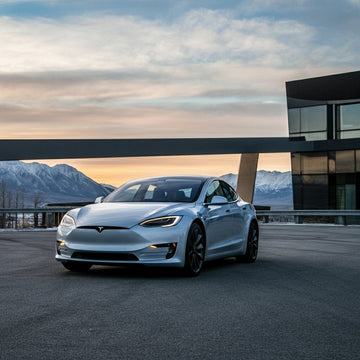NHTSA Investigates Tesla's Robotaxi Plans Amid Concerns Over Full Self-Driving Performance
The National Highway Traffic Safety Administration (NHTSA) has initiated an investigation into Tesla's ambitious plans for its Robotaxi service. This decision comes in light of recent reports highlighting potential shortcomings of the vehicle's Full Self-Driving (FSD) capabilities, particularly under adverse weather conditions.
Background on Tesla's Robotaxi Initiative
Tesla has been at the forefront of autonomous vehicle technology, with its CEO, Elon Musk, consistently touting the company's path towards a fully operational Robotaxi fleet. The vision involves deploying a fleet of self-driving vehicles that would operate as ride-hailing services, significantly reducing the need for individual car ownership. However, the NHTSA's investigation raises questions about the safety and reliability of such systems.
The NHTSA's Concerns
According to reports, the NHTSA is particularly concerned about how Tesla's FSD technology performs in less than ideal weather situations, such as heavy rain, snow, and fog. These conditions can severely impact sensor functionality and the overall decision-making process of the vehicle's AI.
In a statement, the NHTSA noted, “The agency is committed to ensuring that automated vehicle technologies are safe and effective in all conditions. We will thoroughly investigate any potential safety risks.”
Safety Data and Statistics
Statistics from various safety studies indicate that a significant percentage of accidents involving autonomous vehicles occur in poor weather conditions. A report from the Insurance Institute for Highway Safety (IIHS) found that 40% of crashes involving self-driving technology occurred during adverse weather, underscoring the need for robust systems capable of handling such scenarios.
Tesla's Response
In response to the NHTSA's investigation, Tesla has expressed confidence in its FSD technology. The company cited a series of software updates that aim to enhance the vehicle's performance and safety features. Tesla representatives emphasized their commitment to working closely with regulatory bodies to address any concerns.
The Implications for the Future of Autonomous Vehicles
The outcome of this investigation could have significant implications for the future of autonomous driving technologies. If the NHTSA finds evidence of safety risks associated with Tesla's FSD system in poor weather, it could lead to stricter regulations and a slowdown in the rollout of autonomous vehicle technologies across the industry.
Key Takeaways
- The NHTSA has launched an investigation into Tesla's Robotaxi plans due to concerns about FSD performance in adverse weather.
- Statistics indicate that many accidents involving autonomous vehicles occur during poor weather conditions.
- Tesla maintains confidence in its FSD technology and is committed to addressing safety concerns.
- The investigation could influence the regulatory landscape for autonomous vehicles moving forward.
Conclusion
The NHTSA's probe into Tesla's Robotaxi initiative highlights the ongoing challenges surrounding autonomous driving technologies, particularly regarding safety in adverse conditions. As the investigation unfolds, the results could shape the future of not only Tesla's ambitions but also the broader landscape of autonomous vehicles.










